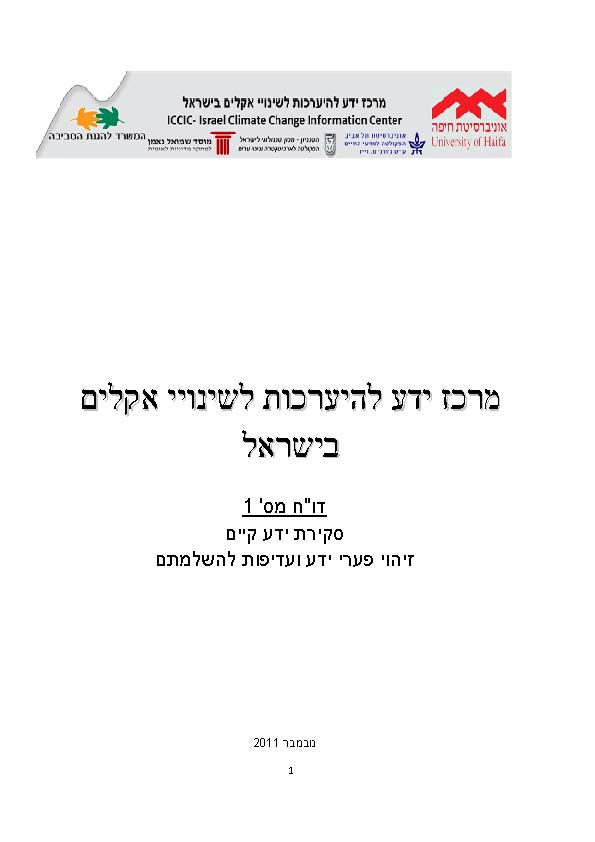In accordance with a decision of the Israeli Government (No. 474 – June 2009), in March 2011, the Ministry of Environmental Protection established a knowledge hub, the Israeli Climate Change Information Center (ICCIC). The mission of ICCIC is to assemble the existing knowledge and scientific research regarding adaptation to climate change, identify research gaps and define the risks and consequences of climate change in various sectors. According to the findings, the ICCIC will suggest a national policy for each of the sectors. Furthermore, the ICCIC will integrate Israel’s knowledge and technologies as a basis for implementation and marketing purposes both locally and abroad.
Adaptation policy is becoming a key issue of the post-Kyoto 2012 international climate policy agreement. The difficulties in implementing national and international mitigation policies and the increasing awareness of climate change phenomena eventually gave impetus to science and policy research on adaptation.
The first report of the ICCIC was finalized on September 2011. The report was prepared by professional experts who each had a special steering committee for each subject. The committees include experts from the academic centers as well as relevant government ministries and industry. The goal of these groups was to perform as a multi-disciplinary think tank that will support the working procedures. The report reflects the existing knowledge regarding the implications of climate change on the State of Israel. It is based on global and local scientific research and professional publications. The report includes the identification of the existing research gaps and provides detailed recommendations about prioritized research requirements (short-term and long-term). This will enable the Ministry of Environmental Protection and other Ministries to set priorities for the required research.
The full report (in Hebrew) is constructed as follows: First, in the climate research section, the predicted climate changes in the next 50 years are described by decade. This is followed by the implications of climate change focusing on 4 areas:
• The water sector
• Public health
• Biodiversity
• The urban environment and green building
Finally, the scientific knowledge is reviewed in two multidisciplinary areas, geo-strategy and the Israeli economy.












